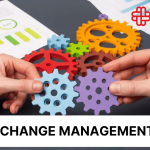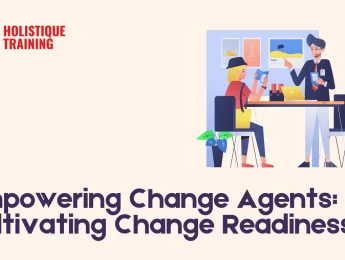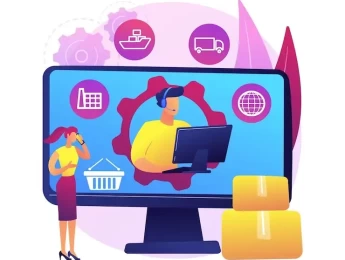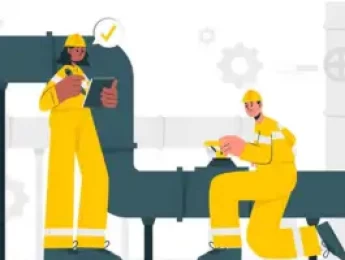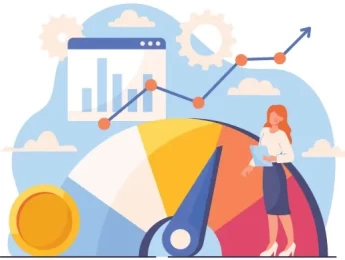Human Resources (HR) change management is a strategic and systematic approach to navigating organisational transitions effectively. In the dynamic landscape of today's workplaces, HR professionals play a crucial role in facilitating and managing change initiatives. This process involves understanding the need for change, assessing the organisation's readiness, and implementing strategies to overcome resistance while ensuring a smooth transition.
HR change management encompasses various elements, including communication strategies, stakeholder engagement, leadership involvement, and fostering a change-ready culture. It also involves identifying potential challenges, mitigating risks, and aligning the workforce with the organisational vision.
By incorporating a comprehensive understanding of human behaviour, communication dynamics, and organisational culture, HR change management aims to create a positive environment that supports innovation, adaptability, and sustained success in the face of evolving business landscapes.
Upon completion of this course, participants will be able to:
- Understand strategic approaches to Human Resource Management (SHRM).
- Exhibit proficiency in employee procurement, hiring, and acknowledgement.
- Articulate effective strategies for tackling employee difficulties.
- Review performance management within diverse cultural settings.
- Create a change management model tailored to the workplace.
- Possess the ability to understand and navigate organisational culture.
- Recognise change management practices influenced by culture.
- Cultivate practical skills in Organisational Development (OD).
This course is designed for anyone responsible for changing processes and procedures within an HR setting. It would be most beneficial for:
- HR Professionals
- HR Business Partners
- HR Managers
- Change & Control Managers
- Data Analysts
- IT Managers
- Project Managers
This course uses a variety of adult learning styles to aid full understanding and comprehension. Participants will review videos and trainer-led presentations to understand the various change and control models and how they may directly affect an organisation. They will also view several real-world case studies to determine the best processes and practices when changing the HR model, which may affect the whole organisation.
They will then work together in groups to map out and assess their current HR procedures and determine any issues or pain points which may require current or future change to enhance their effectiveness. They will apply various change models to the problems they’ve raised and conclude on the best route to take to move forward.
Day 5 of each course is reserved for a Q&A session, which may occur off-site. For 10-day courses, this also applies to day 10
Section 1: Resource Management Practices
- Strategic resource planning.
- Budgeting and financial resource allocation.
- Human resource management.
- Project resource management.
- Time and task management.
- Inventory and supply chain management.
- Sustainable resource practices.
- Technology in resource management.
- Risk management in resource allocation.
Section 2: Performance Management in a Multi-Skilled Environment
- Adaptations for multi-skilled teams.
- Key performance indicators (KPIs) in a multi-skilled context.
- Feedback and communication strategies.
- Competency-based performance appraisals.
- Aligning individual goals with team objectives.
- Continuous improvement in a multi-skilled environment.
- Balancing individual and team performance metrics.
Section 3: Process Development & Communication
- Mapping and analysing business processes.
- Effective documentation practices.
- Communication strategies in process development.
- Stakeholder engagement and collaboration.
- Implementing change in processes.
- Quality assurance in process development.
Section 4: IT & Systems Implementation
- Technology integration for performance monitoring.
- Technology tools for process communication.
- System design and architecture.
- Software development life cycle (SDLC).
- Database management in IT systems.
- Testing and quality assurance.
- User training and support.
- Change management in IT implementation.
- Cybersecurity in systems implementation.
- Cloud computing and integration.
- Post-implementation evaluation and maintenance.
- Feedback loops and success matrices.
Section 5: Change Management & Leadership
- Theories and models of change.
- Leading change initiatives.
- Communication strategies in change management.
- Stakeholder engagement and influence.
- Building a change-ready culture.
- Resistance management.
- Emotional intelligence in leadership.
- Adaptive leadership skills.
- Team dynamics in change.
- Monitoring and evaluating change.
- Sustainable change practices.
- Remote vs. in-person communication.
Section 6: Approaches to Complete Organisational Change
- Traditional change management models.
- Agile change management.
- Kotter's 8-step process for change.
- Lewin's change management model.
- Prosci's ADKAR model.
- Using the Covey Matrix to enhance delegation.
- Systems thinking in organisational change.
- The role of leadership in change.
- Employee engagement in change.
- Cultural change within organisations.
- Technology-driven change.
Upon successful completion of this training course, delegates will be awarded a Holistique Training Certificate of Completion. For those who attend and complete the online training course, a Holistique Training e-Certificate will be provided.
Holistique Training Certificates are accredited by the British Assessment Council (BAC) and The CPD Certification Service (CPD), and are certified under ISO 9001, ISO 21001, and ISO 29993 standards.
CPD credits for this course are granted by our Certificates and will be reflected on the Holistique Training Certificate of Completion. In accordance with the standards of The CPD Certification Service, one CPD credit is awarded per hour of course attendance. A maximum of 50 CPD credits can be claimed for any single course we currently offer.
- Course Code PH1-129
- Course Format Classroom, Online,
- Duration 5 days


